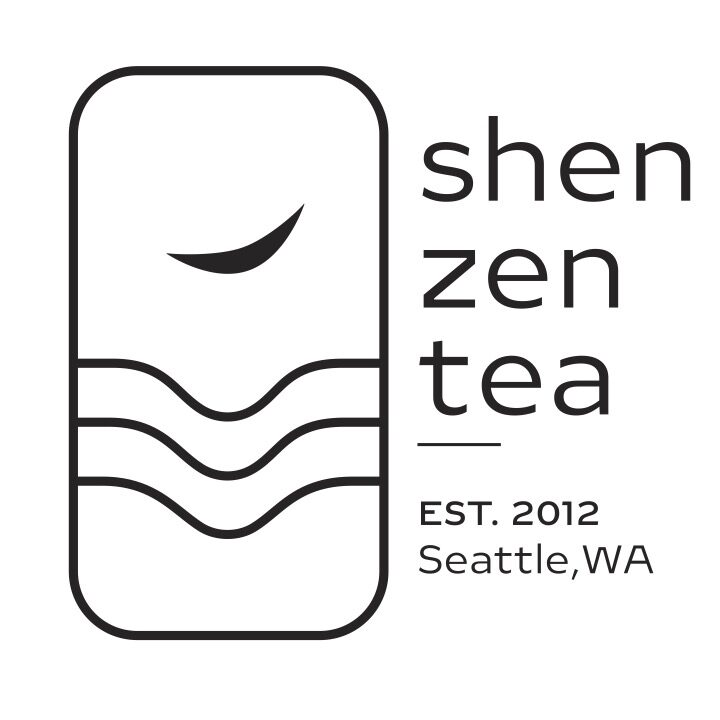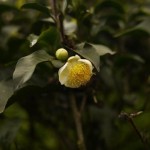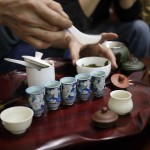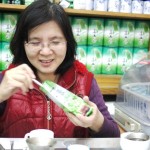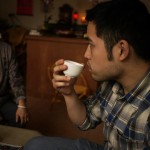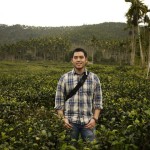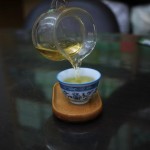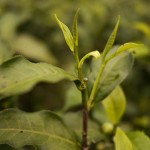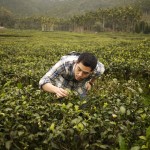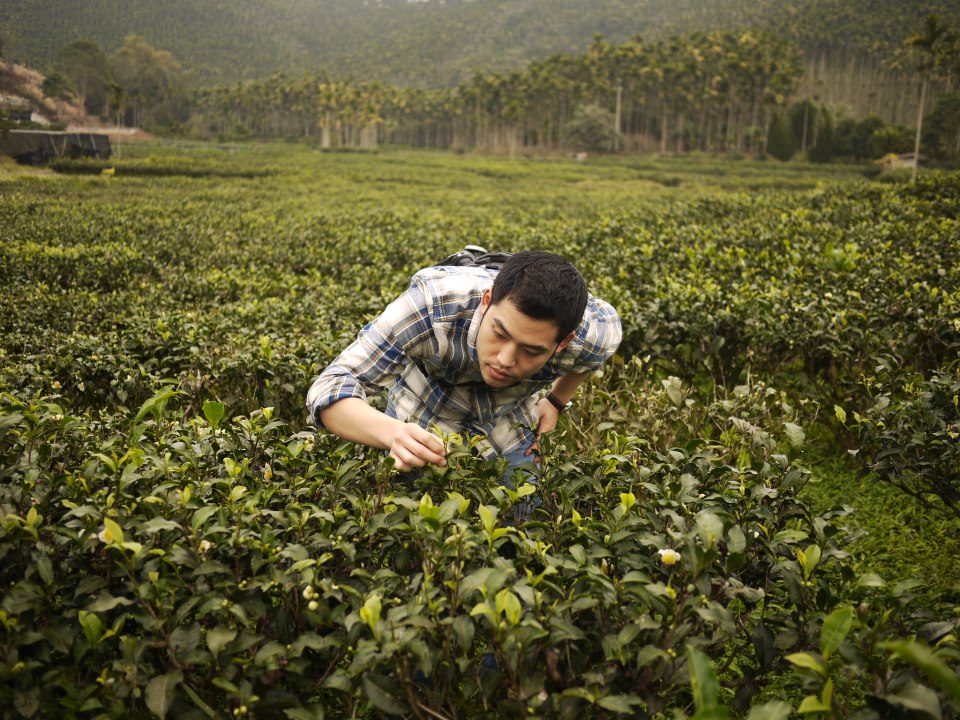
Over the last holiday season, my wife and I travelled to Taiwan to visit our family. While we were there, I also made it a point to search for some of our most beloved teas and to source them back home directly from the Taiwanese tea farmers. As it turned out, we spent at least as much time looking for tea as we did with family. Sorry, hun!
Visiting Farmers of Shan Li Xi
One of our first stops was at a tea farmer’s shop, where the farmer grew oolong at Shan Li Xi, located in Nantou, County. We were greeted by the farmer’s wife who ran the shop, while her husband and his brother worked the farm. What struck me first was the farmer’s idea of variety. Her entire store was stocked with no other tea except for oolong! But of course, there were different cultivars of oolong, roasted at different temperatures, and grown at different elevations; so, there was plenty variety to them! We were inspired by the oolongs, even though the farmers seem to make quite a strong brew… I couldn’t wait to taste it my way!
Discovering Sun Moon Lake
Next, we journeyed to Sun Moon Lake in the heart of Nantou County. The town was built around a massive lake which seems to be fed by tributaries from the surrounding basin. In essence, Sun Moon Lake encased much of the moisture from the surrounding mist enshrouded mountains. The climate and cultivation of sweet pineapples makes for an interesting region to produce extraordinary tea! At Sun Moon Lake, we made several stops at different tea farms, and stumbled upon one small farm tucked against a hill at the west side of the lake. At this farm, we found an exceptional producer of the Ruby 18 black tea we were searching so hard for! They also had some interesting varieties of transplanted assam. In Taiwan, the assam cultivar is quite popular when grown in the Sun Moon Lake climate. They call it, “Assamu.” Of course, we had to bring it home!
The City of Ceramics
Although it was heart breaking to leave Sun Moon Lake, I was really excited to head north towards a town named Yingge (pronounced “iŋ gu̇”). I had been looking for good and affordable handmade pottery in Taiwan, and I would either find cheaply molded pieces that were also common in the US or over priced work. Yingge is known as the town of ceramics. I was so excited to meet the potters who made the pieces sold in this town. I’ve never seen a town that was so dedicated to a single craft. Store-to-store, there were no coffee or tea shops or restaurants .. only teapots and ceramics. Because we were meeting family friends for dinner, I only had one hour to to browse the stores. I ran between stores and took their business cards. At the end of the day, I packed 20 handmade teapots into my suite case! Three of which, I was very excited to have because they were high fired by masters. In Taiwan, they call it “tsou sou” which means “grass fired.” In this process, a master would fire his/her work in a heap of fire. This process takes three days, and the work must be rotated to ensure even heating. The final products are teapots with completely unique textures and shades. Because the fire controls the outcome of the glaze, it can be rather unpredictable, even for the master.
